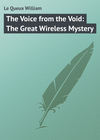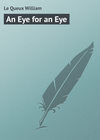Czytaj książkę: «The Broken Thread», strona 11
Chapter Twenty One
Raife’s Jealousy Ends Disastrously
They were happy days at Aldborough Park.
Each succeeding day seemed to complete the sum of Hilda Muirhead’s hopes. In addition to motor-car rides to Southport, the scene of Raife’s first meeting with “the other woman,” Gilda Tempest, Hilda learnt the joys of riding behind good horses. Raife was an expert whip and drove a tandem as an expert. The countryside was again alive, now that the wayward young man had returned to reside among them. There were dinner-parties at the Park, and garden-parties, where Hilda was introduced to the county families, some of whom were amiable, and even affable, whilst others were not. It was a meeting of disappointment to many of the stately dames, and sometimes frigid daughters, that an American woman should have been selected to reign as queen at the beautiful old home, which, hitherto, had been regarded as a stronghold of English womanhood. These matters were, however, of slight consequence to Hilda, whose happiness was supreme in the possession of the love of the handsome and dashing young aristocrat, whom Fortune had thrown in her way.
She captured the hearts of all the men, and a large proportion of the women, with her frank and ingratiating manners. She over-ruled convention without destroying good taste; the tenants and townspeople were completely won over by her cordiality and good nature, which was frequently lavish. The old landlord, Twisegood, added to his evening custom by narrating the free and unconventional manner in which she made her first entry into his house. The old town of Tunbridge had not been so gay since the days of farthingales, frills and furbelows.
Hilda excelled in most sports. At tennis, golf, and every pastime, she led the way, and there was renewed life in clubs that had become, in a sense, rusty for want of what is generally called “fresh blood.”
Raife Remington, the woman-hater of a few months ago, had become the most courtly of lovers, and it only needed the joy of marriage bells to complete the symposium of human delight.
In human affairs, however, it is not to be supposed that Fate will not be fickle, and cast a cloud to destroy the perfection of desire. Jealousy has ever been an accompaniment to love, and it draws no distinction between the yokel and the aristocrat.
When Harold Brookman, in the competition flight from the Hendon aerodrome to Manchester, came to grief and descended rather hurriedly in the home-croft of Aldborough Park, it was Hilda who, by chance, extricated him from a tangled mass of machinery. With a sense of initiative and promptitude she obtained assistance, and Harold Brookman was installed in a room at the Park, pending his recovery from the crumpled state in which he found himself.
It has been customary to surround aeronauts with a halo of heroism, and Harold Brookman’s exploits were the talk of the world of flying. It happened, unfortunately, that Harold possessed that form of good looks that belongs to flying men, indicating firm resolve and determination. Further, chance willed it that he should be an American.
Those who live under foreign flags are naturally attracted to their fellow-countrymen when they happen to meet. Hilda Muirhead was supremely happy in her love for Raife Remington, and he in turn, was satisfied in their mutual devotion. It was unfortunate, therefore, that Raife should have overheard Hilda’s genuine and impulsive utterance as she and the injured man met for the first time on the terrace after his recovery from the accident.
“Well now, sakes alive, it’s good to hear your voice, Mr Brookman. I’ve been away from home so long, it seemed I was never going to hear a good American voice again.”
Raife, who came over on to the terrace at that moment, glared at Harold, and in response to Hilda’s invitation: “Hullo, Raife, come and talk to us,” he replied, rather gruffly, “I’m sorry, I’m busy just now. Besides, I haven’t got a good American voice.”
The incident should have been quite unimportant, but nothing is unimportant where jealousy is concerned.
Raife nursed his indignation, and, without announcing his intention, went to London that afternoon. Lady Remington, realising that it was natural that Hilda should be pleased to meet one of her countrymen, especially in such exceptional circumstances, urged Harold Brookman to prolong his stay. In spite of his daring aerial exploits, Harold was very human, and the prospect of enjoying the hospitality of this charming old lady, and the company of his attractive young countrywoman, was agreeable. So he stayed at Aldborough Park, and, when the slight repairs that were necessary had been effected to his aeroplane, he made some trial flights from the croft, which was admirably adapted for the purpose.
It was natural that he should invite Hilda to accompany him on a flight, and she accepted the invitation with enthusiasm. The delights of aviation have been described, and their fascination for the more courageous type of woman is a matter of surprise to many, but it is easily understood by the psychologist. Many days passed, and the wayward Raife sulked at his club in London.
Eventually he returned unannounced, as was his custom. He imagined that Harold Brookman had taken his departure. He chose to drive in a cab that attended at the station, and called on the old landlord, Twisegood, on his way home. The old man greeted him with his customary enthusiasm. The somewhat incongruous couple were really friends, in spite of the difference in their station in life. For a while, Raife’s ill-humour subsided, and he greeted the landlord cheerily.
“Well, Twisegood, how are you, and what’s the news?”
Without waiting for a reply, he smacked the old man on the back, saying:
“Come along, let’s go up to the white room and have a chat. You have what you like, but bring me a bottle of your sparkling cider.”
He ascended the stairs and entered the quaint white room. As he threw himself into a chair, and awaited the landlord with the refreshment, his mind, which was already perturbed, reverted to the occasions when he had met Gilda Tempest in that same room. It also brought to his memory the tragic death of his father, and the extraordinary encounter with Gilda in his library in the middle of the night. In spite of these episodes of crime, this strange girl still exercised an extraordinary fascination over him. The fit of jealousy was still on him, and his prolonged fit of sulking in London had not alleviated it. He sprang from his chair, and paced the room angrily, muttering:
“It’s good to hear your American voice, Mr Brookman. Bah! She’ll call him Harold next.” Twisegood stood in the doorway, holding the silver tray of refreshments. The old man waited, wondering what could have disturbed the young master in this way. Turning on his angry stride, Raife said:
“Come in, Twisegood. Put the tray down and let’s sit and talk. I’m not quite myself to-day, so don’t take any notice of me, if I’m disagreeable.” He took a deep draught of the cider, and added: “What’s the news up at the Park? I’ve been away for a few days.”
Twisegood smacked his lips after a long pull at his favourite Kentish ale, and commenced:
“Well, Master Raife, there be fine times. That American gentleman, he be flying in his machine all over the place, and they do tell me that Miss Muirhead, she be a real plucked ’un, and she goes up along with him.”
Raife did not wait for any more. The demon of jealousy and hate possessed him. He rushed from the room and down the stairs, exclaiming in passionate tones: “I’ll murder the brute, in spite of his American voice.”
Old Twisegood stood mystified by this extraordinary outburst. He descended slowly, wagging his head.
Raife drove up to the main entrance of Aldborough Park, and, as he entered, met his mother, Lady Remington. In a fierce rage he approached her. “Mother! What’s that American fellow doing here? He’s got to go – and go at once.”
Lady Remington was alarmed at her son’s agitation, and endeavoured to pacify him, saying: “Raife, what’s the matter with you? You look positively deranged.”
They went up the staircase together, and the old lady endeavoured to pacify her son. They entered the library, and, with all the tact and patience at her command, she tried to soothe his wounded feelings. It seemed to her that some terrible streak of ill-fortune had entered into her life, and that of her unfortunate son.
He rang the bell viciously for Edgson. No one else would have answered the noisy peal that indicated the master’s rage. When he appeared, Raife demanded: “Where is Mr Brookman?”
The butler replied, with deference: “I think he’s in the croft, Sir Raife, with his flying-machine.”
In sharp tones, that were unfamiliar to the old servant, he rasped out: “Where is Miss Muirhead?”
The answer came back: “I think she is in the croft, too, Sir Raife.”
Raife seized his hat, which he had flung upon the table, and descended with heavy tread to the hall. His powerful frame quivered with emotion. He slammed the door and, endeavouring to control himself, sauntered down the terraces, and entered the croft by way of the stable-yard. He was just in time to hear the buzz of a rapidly-revolving engine, and, looking upwards, he saw an aeroplane winging its way at lightning speed over the turrets and twisted chimneys of the Tudor mansion that was his. At the far end of the croft he descried Hilda, his fiancée, waving a handkerchief to the disappearing airman. His rage knew no bounds. He wanted a gun to take a parting shot at this American, who had intruded himself on his happiness. He waited with folded arms and scowling face, until Hilda had tripped across the soft grass of the croft. She ran straight up to him, and, before he had time to resist, threw her arms around his neck. Her sweet voice, in genuine tones, rang in his ears: “Raife, Raife, how we have missed you. You dear, wicked old thing to have run away from us.”
The complete spontaneity of her action, and the earnestness of her conduct, immediately softened his rage. For a while he said nothing. She lingered with her arms still clinging to him, and appealed: “Raife, why, I verily believe you are angry with me. Don’t, dear Raife. It will break my heart if you, my hero, my own true love, should be angry with me.”
Then, as the cloud gradually removed from his stern countenance, she continued, pleadingly: “What have I done, Raife? Was it only that stupid talk about Mr Brookman’s American voice? Why, we always talk that way over there. If you had been away for a long time, wouldn’t you like to hear an English voice, even if it was only dear old Edgson’s, or one of your grooms’ or gardeners’?”
The conquest was nearly complete. Raife’s smile was only half-hearted as yet, however, as he said, in a tone of remonstrance: “Yes, but they tell me you have been riding in that fellow’s aeroplane.”
Hilda laughed merrily as she said: “Of course I have. You dear heart, you don’t have to be jealous about that. You great, big, brave darling. You go up in one, and you will find there’s no time for courting when you are chug-chugging through the air at sixty to seventy miles an hour. You only want to court the sky, or else the clouds, then!”
He stopped and gazed into her eyes, and a gradual feeling of shame came over him, as it dawned upon him that his jealousy had savoured far more of the plebeian than the patrician. He was receiving a lesson from this pure-spirited, ingenuous American girl. She might be impulsive, but she was frank and pure-spirited. She had given up her love to her hero and she would be true to him.
He stooped lower and kissed her, saying: “Forgive me, Hilda. I was jealous, and I was a veritable fool. There seems to be a kink in my character somewhere, and you have made me ashamed of myself.”
The reconciliation was nearly complete, and the first quarrel of the lovers had ended. Would there be any further rifts in the lute, or was there to be perfect peace after this ill-considered hurricane of jealousy?
Harold Brookman sailed through the clouds on his northward journey to Hendon aerodrome. He arrived without further mishap, and was received with acclamation by his comrades of the air. He was not aware of how imminent had been the quarrel between himself and his host, Sir Raife Remington. Nor was he aware of the unreasoning ferocity of the other man’s jealousy.
The two lovers wandered, arm in arm, through the gardens. Their happiness was apparently restored, but Hilda Muirhead had received the first shock to her ideals. The wound was there. Would it be allowed to heal for ever, or would the malignant curse of the long years ago enter into her young life also?
Their progress was slow, and there was little conversation between them. Here and there a gardener saluted them, and inwardly envied the young master and his bride “that was to be.” Lady Remington watched them from the library window as, occasionally, they came into view. To her, also, happiness had, in part, returned after the distressing incidents of the morning. Her heart ached for her wayward son, and the future was fraught with danger. She loved Hilda already with a mother’s love, and she was very anxious lest Raife’s vagaries should destroy the peace of the young girl’s life. She descended the broad staircase and met them as they sauntered along the terrace. She was the first to speak, with the intuitive knowledge that, by doing so, she might save embarrassment. She addressed herself to Raife:
“Wasn’t it strange, Raife, that Mr Brookman should come from Cincinnati, and be married to Hilda’s old college friend? What was her name, Hilda?”
Raife winced, blushed, and stammered: “You didn’t tell me he was married.”
Hilda replied, with some show of spirit: “No, Raife, you didn’t give me a chance. In any case, I don’t see that need make any difference. If Mr Brookman, or any other fellow countryman in distress, were unmarried, I should feel it my duty to be civil to them.”
Every word, uttered with an accentuated intonation, was a stab to Raife, who cursed himself for his foolish impetuosity.
Hilda concluded: “Yes, Harold Brookman married my college chum, Lottie Devine. They’ve been married about four years. They have two children and are very happy. Lottie wouldn’t be my chum if she were not a nice girl, and if Harold Brookman were not a nice man, he wouldn’t have married Lottie. He’s over here training for a Transatlantic air race, and I hope he’ll win.”
Raife Remington’s discomfiture was complete.
Chapter Twenty Two
Another Mysterious Visitor in the Night
Long after Hilda had retired to bed one night, Raife and Mr Muirhead having put on their heavy motor coats, sat enjoying the moonlight, and chatting over the events of the day. There was much to talk of, for there were many questions of settlements, entailing long consultations with lawyers. No reference was made between the two men to Raife’s jealousy of the last few days. An interview was arranged with Mr Kellaway, the family solicitor, and the late Sir Henry Remington’s old friend. The services of Messrs Gordon and Gordon, the solicitors of Edinburgh, whom the late Sir Henry Remington had chosen to make his will, would have to be enlisted.
Mr Muirhead explained that, whereas, he did not own valuable estates like Aldborough Park, his financial interests in American securities were extensive and sound. He proposed to endow Hilda with enough of his worldly wealth to enable her to play the Lady Bountiful among Raife’s peasantry and elsewhere, and, at the same time, support herself in those directions in which every independent-minded American girl is accustomed.
They were talking earnestly in this manner, when Mr Muirhead remarked, “Your servants are about late, to-night. I suppose that’s a gamekeeper. I haven’t much knowledge of such things. We don’t preserve game in the United States – at least,” he added, “not to the extent that you appear to do.”
Raife glanced in the direction indicated, and he saw a figure creeping stealthily in the dark shadows of the clump of cedars and pines. “That is not a gamekeeper,” he said.
He rose, followed by Mr Muirhead, and started in the direction of the retreating figure, which immediately commenced to run. Raife threw off his motor coat, exclaiming: “Heavens! I wish I had my revolver.”
Mr Muirhead, as is the practice of many Americans, had his. It was an old-fashioned Deringer. He handed it to Raife, saying: “Take mine.”
Then began a chase, but the retreating figure had, by now, a good start. Down the beech avenue for a hundred yards, then through a gap into a croft, skirting a hedgerow and over a gate at the end, Raife arrived in time to see his quarry jump into a grey car. There were two shots, one at Raife as he clambered over the gate, and one from Raife as the car sped down a side lane that led to the main road. Raife was near enough to see that the figure he had hunted was the omnipresent phantom Apache, who had haunted him half-way over Europe and Egypt.
In the morning Hilda appeared fresh and bright, garbed in a gown of grey tweed. She and Raife were strolling down a long, straight path, where nectarines and peaches were trained against a high, grey-red brick wall, buttressed and lichen-covered on top. On the other side were espalier apple-trees and all those things which go to make an old English garden. They passed through an arch in the wall into an orchard. The blossom of an orchard in springtime is the most inspiring sight that humanity can wish for. There is hope in every petal.
They had talked lightly of many things. Most of their conversation pertained to the beauty of everything around. Hilda had thrown away the paper that she had found under the window of her bedroom, but in spite of her determination to forget the incident, some strange impulse impelled her to allude to it now, although many days had passed. So she said: “Oh, I say, Raife! In my room, the first night I was here, I picked up a piece of paper. On it was typewritten something like this: ‘It is dangerous to rob.’ It was placed under the window that opens on to the balcony. I suppose some one who stayed there before me was fond of texts and that sort of thing, but it struck me as strange.”
Raife’s face clouded. The supreme happiness of that spring morning, with its exquisite environment, had vanished. He had practically forgotten his chase after the elusive Apache the night before. He had been happy for a brief period while among his own on a superb spring morning – and he now counted Hilda among his own. Why should he be persistently pursued by a malevolent fate? He laughed at the incident, and said: “Yes, I expect that is so. You see, I have been away so long. I expect mother has had some dear old lady staying here, and she dropped one of her texts, and the maid did not notice it.”
Doctor Malsano sat in his den. It might be called a studio, a library, a laboratory, for he was a master of many crafts. A maid knocked at his door and announced, “There is a man named Lesigne wishes to see you, sir.”
“Ask him in,” snapped the doctor.
A pale-faced young man, whose features resembled a combination of cunning and all that is decadent in human physiognomy, entered deferentially. The doctor glared at him.
“Have you bungled again?” the doctor asked.
“No, monsieur! I have not bungled. I left the note, as you told me, under the young lady’s window – the window of the young lady at Aldborough Park. Since then I visited the place again and the man, Sir Remington, he chased me across the park. I escaped and I fired at him. He fired at me. It was difficult. I enter the car. I get away. I am here. I await instructions. I am at your service, sir!” Doctor Malsano took this narration of an exciting incident, as he would have cracked an egg at breakfast-time. The young man stood deferentially, as the old man spoke. “Lesigne, you are a bungler, but you seem to have done this rather well. Go to your room and sleep. I may want you at any moment.”
The young man turned and left the room. He was completely under the control of this Machiavelli – the person whose evil influence controlled the fate of many, whilst he appeared indolent.
They were merry days at Aldborough Park on the occasion of the wedding of Hilda Muirhead to Sir Raife Remington. Again the church bells pealed, and the tenants and retainers met for a feast, at which there was much rejoicing. Edgson, the old butler, was not there. It was his privilege to be at the house in Mayfair, and there he took his place, honoured in the rank of servitors, which had been swelled from those at Aldborough Park.
Mr Muirhead, with an aptitude which belongs to the aristocrats of the United States, took his part remarkably well. Lady Remington was gracious and kindly to all. These were Raife’s happiest moments. His innate modesty made him the more attractive to every one, for there was the dominating personality of a strong, active man pervading the whole situation. Hilda had no doubts. There was no sense of perturbation. She was radiant, happy, and beautiful. She accepted everything. Lady Remington tendered every loving service to her, personally, and she was not allowed time to reflect on the “other woman.” The “other woman” was only known to herself and Raife. The others knew not of her. Raife and herself did not speak of this dread apparition which had by some mysterious means crossed the path of their perfect love several times.
A wedding at St. George’s, Hanover Square, is frequently an impressive ceremony. On the day of Raife’s wedding there was more than the usual crowd of bystanders. The church was filled with a smartly-dressed number of society women and men. There were no white horses, but a Rolls-Royce and a Mercedes car took their place. The pages, dressed in the Tudor costume of the period of Edward the Sixth, were there, and a throng of people who represented many grades of the peerage. Hilda was dressed as the best Court dressmakers of London, alone, can dress a woman for an occasion. Raife, with the help of a Cork Street tailor, was immaculate, and his best man was Edward Mutimer, his old college chum, who was with him on the front at Southport when he met Gilda Tempest for the first time.
The ceremony of marriage was complete. The choir had sung. The organist had played the Bridal March from “Lohengrin.” It was not an occasion for Mendelssohn’s Wedding March. The rice had been thrown and the gaping crowd of onlookers were satisfied. Raife and Hilda were alone, for a few moments, in the Rolls-Royce car. They were the briefest moments of his short lifetime. They did not talk, for there was too much cause for thought.
Smartest among the well-dressed women in St. George’s, Hanover Square, was Gilda Tempest. It was not hard, with the confidence and skill which had served her on so many occasions, for Gilda to join the guests who were invited to the reception that followed the wedding. The occasion was quite conventional, and Hilda had left to prepare for departure on the honeymoon. Every one was chatting merrily and Raife was leaving the room, when, to his intense surprise, he was confronted by Gilda.
“You here?” he exclaimed.
“Yes, Raife. I am here. I must talk to you, I am so sad – so alone. Let me talk to you. It will probably be the last time. Let me talk to you – ”
Unobserved by the merry crowd of guests who were bandying commonplaces to the sipping of champagne and various wines, Raife led Gilda into a conservatory which overlooked a drab old London garden – or backyard, with a lilac bush in full blossom.
Raife spoke harshly: “What do you want? Why do you come here, to-day? – to-day of all days! Why do you come here?”
Gilda Tempest spoke. In short, staccato accents she said: “Raife! Raife, I must speak to you. You are the only person in this wide world, to whom I can speak. Let me speak to you. Raife! I must talk, just for the briefest while.”
All the old and strange fascination of this extraordinary girl returned. Raife stood entranced by this absorbing figure. The scene that followed was unparalleled in the history of a wedding-day. Her beauty had returned to her. She was no longer haggard, and there were no lines to mar her face. Her whole soul appealed to him, and, in spite of all the conventions, he responded.
Raife Remington fell – and fell in a most inconceivable manner.
The time drew near for the departure of the wedded couple. Hilda, looking charming in her travelling-dress, was going round and saying good-bye to the guests. The last farewell spoken, she looked round for her husband. A sudden premonition of something disastrous, something awful, assailed her and communicated itself to the others. Where was Raife? A dozen voices cried out. There was a hurried search in every room where he could possibly be. A few moments of agonised suspense and wonder, and then the horrible truth was revealed.
The bridegroom had disappeared!
On the cliffs of Cromer were a hat and coat. The local police had been duly informed of the event, and the inspector, with a sergeant, were investigating the circumstances.
“Looks like suicide,” said the inspector. “It’s a good coat, too. Well, let’s get to work. What’s in the pockets? We shall have the newspaper men round presently, and we must be ready for them when they get here. Curse the newspapers! Our job would be much easier if it were not for them. They smell out a tragedy like a fly finds treacle.”
First came a silver card-case, with coronet and initials in multi-coloured jewels, “R.R.” The cards were inscribed “Sir Raife Remington, Bart., Aldborough Park, Tunbridge Wells.” This was a card-case presented by Hilda Muirhead in the happy days of courtship, which ended in marriage.
A letter, in brief, rasping sentences, was the next discovery. “Kismet! Allah wills it. It was not to be. There is a curse in my life, and now I abandon my life.” The letter was not signed.
The inspector tossed the letter to the sergeant, who, having read it, remarked, laconically: “Ten to one, there’s a woman in the case.”
The newspapers were very busy for many days after Raife’s coat and hat had been found on the cliffs at Cromer.
Again Doctor Malsano sat in his den, and there was an expression of triumph on his face. Gilda Tempest was there, and the doctor spoke soothingly.
“Gilda, we are approaching the end. You played your part very well the other day at the wedding ceremony.”
Gilda shuddered. The full force of the crime that she had been compelled to commit, confronted her.
Case-hardened, and soaked in the jaundiced atmosphere of criminality, the doctor continued to smile.
“Ha! ha! Remington thought he would escape. Your father killed him and he killed your father. But I am here, and his son shall not escape. Gilda, you must complete the ruin of that young fool. The vendetta is not complete.”
Gilda writhed as the old man murmured these hateful words. She loved Raife, and, in her sane moments, would have given more than her life for him. The baneful influence of her uncle had led her to wield a fateful power over the man she loved.
The scene that followed the disappearance of the bridegroom on the wedding-day in Mayfair does not admit of description.
Lady Remington, chastened by a sequence of sad events, remained stately, and carried off the situation with a grace that softened the difficulties of those trying moments.
The pride of Hilda Muirhead – Lady Remington – had been sorely tried. Mr Reginald Pomeroy Muirhead would have, unhesitatingly, shot Raife Remington if they had met.
Easy is the Avernian descent, and Raife had yielded to the malignant control of Doctor Malsano.
A newspaper sensation does not last very long, and the disappearance of Sir Raife Remington no longer occupied the space that would be given to a Cabinet crisis.
The newspaper man on “a crime story” is not easily set aside. The intelligence of the police is far beyond that which they are paid for. There were certain discrepancies in the circumstantial evidence which went to show that Sir Raife Remington had committed suicide.
A paragraph appeared in the daily papers to the effect that: “It is reported that Sir Raife Remington, who so mysteriously disappeared on the day of his wedding, has been seen in Paris.”




















